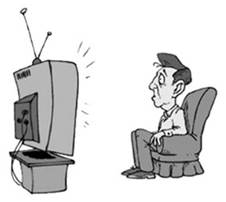| Shop F.Y. – Elisabeth Online Shopping! Do you want to buy some good things? Do you want to buy them at low prices? Do you want to buy them at home? Do you want to buy them right now? F. Y. can help you! There are hundreds of good things for you to choose. Just do it! The thing you need is a computer. Here is the way to buy things online. Choose a kind of thing you want to buy and click on the describing words. For example, if you want to buy a sweater, you can click on the word – clothes. Choose the color and size. If you want a small black sweater, you can click on the words- small and black. You can see a list of small black sweaters with the price. You just click on the sweater you like. Enter your name, address, telephone number and ID card number. OK! The shop assistant will send your sweater in one day. Isn’t it easy? Enjoy your shopping here! |
- 1.
This ad is for______.
- A.a job
- B.a shop
- C.sweaters
- D.computers
- A.
- 2.
If you buy something ______, the first thing you need is a computer.
- A.online
- B.at school
- C.on TV
- D.in a shop
- A.
- 3.
After you find sweaters online, you want a small black one and you can click on “_______”.
- A.clothes
- B.small
- C.black
- D.small and black
- A.
- 4.
What don’t you need to enter into the computer?
- A.Your name
- B.Your address
- C.Your ID card number
- D.Your age
- A.
- 5.
What does the underlined word “click” mean?
- A.查找
- B.点击
- C.选择
- D.勾出
- A.
